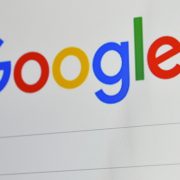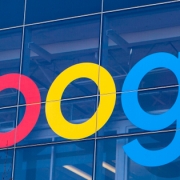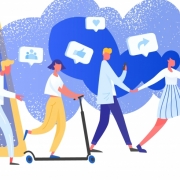During last week’s antitrust hearing, Representative Jamie Raskin (D-Md.) provided a sound bite that served as a salvo: “In the 19th century we had the robber barons, in the 21st century we get the cyber barons.” But with sound bites, much like bumper stickers, there’s no room for nuance or scrutiny.
The news media has extensively covered the “questioning” of the CEOs of Facebook, Google, Apple, and Amazon (collectively “Big Tech”). Of course, most of this questioning was actually political posturing with little regard for the actual answers or antitrust law. But just like with the so-called robber barons, the story of Big Tech is much more interesting and complex.
The myth of the robber barons: Market entrepreneurs vs. political entrepreneurs
The Robber Barons: The Great American Capitalists, 1861–1901 (1934) by Matthew Josephson, was written in the midst of America’s Great Depression. Josephson, a Marxist with sympathies for the Soviet Union, made the case that the 19th century titans of industry were made rich on the backs of the poor during the industrial revolution. This idea that the rich are wealthy due to their robbing of the rest of us is an idea that has long outlived Josephson and Marx down to the present day, as exemplified by the writings of Matt Stoller and the politics of the House Judiciary Committee.
In his Myth of the Robber Barons, Burton Folsom, Jr. makes the case that much of the received wisdom on the great 19th century businessmen is wrong. He distinguishes between the market entrepreneurs, which generated wealth by selling newer, better, or less expensive products on the free market without any government subsidies, and the political entrepreneurs, who became rich primarily by influencing the government to subsidize their businesses, or enacting legislation or regulation that harms their competitors.
Folsom narrates the stories of market entrepreneurs, like Thomas Gibbons & Cornelius Vanderbilt (steamships), James Hill (railroads), the Scranton brothers (iron rails), Andrew Carnegie & Charles Schwab (steel), and John D. Rockefeller (oil), who created immense value for consumers by drastically reducing the prices of the goods and services their companies provided. Yes, these men got rich. But the value society received was arguably even greater. Wealth was created because market exchange is a positive-sum game.
On the other hand, the political entrepreneurs, like Robert Fulton & Edward Collins (steamships), and Leland Stanford & Henry Villard (railroads), drained societal resources by using taxpayer money to create inefficient monopolies. Because they were not subject to the same market discipline due to their favored position, cutting costs and prices were less important to them than the market entrepreneurs. Their wealth was at the expense of the rest of society, because political exchange is a zero-sum game.
Big Tech makes society better off
Today’s titans of industry, i.e. Big Tech, have created enormous value for society. This is almost impossible to deny, though some try. From zero-priced search on Google, to the convenience and price of products on Amazon, to the nominally free social network(s) of Facebook, to the plethora of options in Apple’s App Store, consumers have greatly benefited from Big Tech. Consumers flock to use Google, Facebook, Amazon, and Apple for a reason: they believe they are getting a great deal.
By and large, the techlash comes from “intellectuals” who think they know better than consumers acting in the marketplace about what is good for them. And as noted by Alec Stapp, Americans in opinion polls consistently put a great deal of trust in Big Tech, at least compared to government institutions:
Since our founding, we have strived to maintain a “Day One” mentality at the company. By that I mean approaching everything we do with the energy and entrepreneurial spirit of Day One. Even though Amazon is a large company, I have always believed that if we commit ourselves to maintaining a Day One mentality as a critical part of our DNA, we can have both the scope and capabilities of a large company and the spirit and heart of a small one.
In my view, obsessive customer focus is by far the best way to achieve and maintain Day One vitality. Why? Because customers are always beautifully, wonderfully dissatisfied, even when they report being happy and business is great. Even when they don’t yet know it, customers want something better, and a constant desire to delight customers drives us to constantly invent on their behalf. As a result, by focusing obsessively on customers, we are internally driven to improve our services, add benefits and features, invent new products, lower prices, and speed up shipping times—before we have to. No customer ever asked Amazon to create the Prime membership program, but it sure turns out they wanted it. And I could give you many such examples. Not every business takes this customer-first approach, but we do, and it’s our greatest strength.
The economics of multi-sided platforms: How Big Tech does it
Economically speaking, Big Tech companies are (mostly) multi-sided platforms. Multi-sided platforms differ from regular firms in that they have to serve two or more of these distinct types of consumers to generate demand from any of them.
Economist David Evans, who has done as much as any to help us understand multi-sided platforms, has identified three different types:
- Market-Makers enable members of distinct groups to transact with each other. Each member of a group values the service more highly if there are more members of the other group, thereby increasing the likelihood of a match and reducing the time it takes to find an acceptable match. (Amazon and Apple’s App Store)
- Audience-Makers match advertisers to audiences. Advertisers value a service more if there are more members of an audience who will react positively to their messages; audiences value a service more if there is more useful “content” provided by audience-makers. (Google, especially through YouTube, and Facebook, especially through Instagram)
- Demand-Coordinators make goods and services that generate indirect network effects across two or more groups. These platforms do not strictly sell “transactions” like a market maker or “messages” like an audience-maker; they are a residual category much like irregular verbs – numerous, heterogeneous, and important. Software platforms such as Windows and the Palm OS, payment systems such as credit cards, and mobile telephones are demand coordinators. (Android, iOS)
In order to bring value, Big Tech has to consider consumers on all sides of the platform they operate. Sometimes, this means consumers on one side of the platform subsidize the other.
For instance, Google doesn’t charge its users to use its search engine, YouTube, or Gmail. Instead, companies pay Google to advertise to their users. Similarly, Facebook doesn’t charge the users of its social network, advertisers on the other side of the platform subsidize them.
As their competitors and critics love to point out, there are some complications in that some platforms also compete in the markets they create. For instance, Apple does place its own apps in its App Store, and Amazon does engage in some first-party sales on its platform. But generally speaking, both Apple and Amazon act as matchmakers for exchanges between users and third parties.
The difficulty for multi-sided platforms is that they need to balance the interests of each part of the platform in a way that maximizes its value.
For Google and Facebook, they need to balance the interests of users and advertisers. In the case of each, this means a free service for users that is subsidized by the advertisers. But the advertisers gain a lot of value by tailoring ads based upon search history, browsing history, and likes and shares. For Apple and Amazon they need to create platforms which are valuable for buyers and sellers, and balance how much first-party competition they want to have before they lose the benefits of third-party sales.
There are no easy answers to creating a search engine, a video service, a social network, an App store, or an online marketplace. Everything from moderation practices, to pricing on each side of the platform, to the degree of competition from the platform operators themselves needs to be balanced right or these platforms would lose participants on one side of the platform or the other to competitors.
Conclusion
Representative Raskin’s “cyber barons” were raked through the mud by Congress. But much like the falsely identified robber barons of the 19th century who were truly market entrepreneurs, the Big Tech companies of today are wrongfully maligned.
No one is forcing consumers to use these platforms. The incredible benefits they have brought to society through market processes shows they are not robbing anyone. Instead, they are constantly innovating and attempting to strike a balance between consumers on each side of their platform.
The myth of the cyber barons need not live on any longer than last week’s farcical antitrust hearing.












